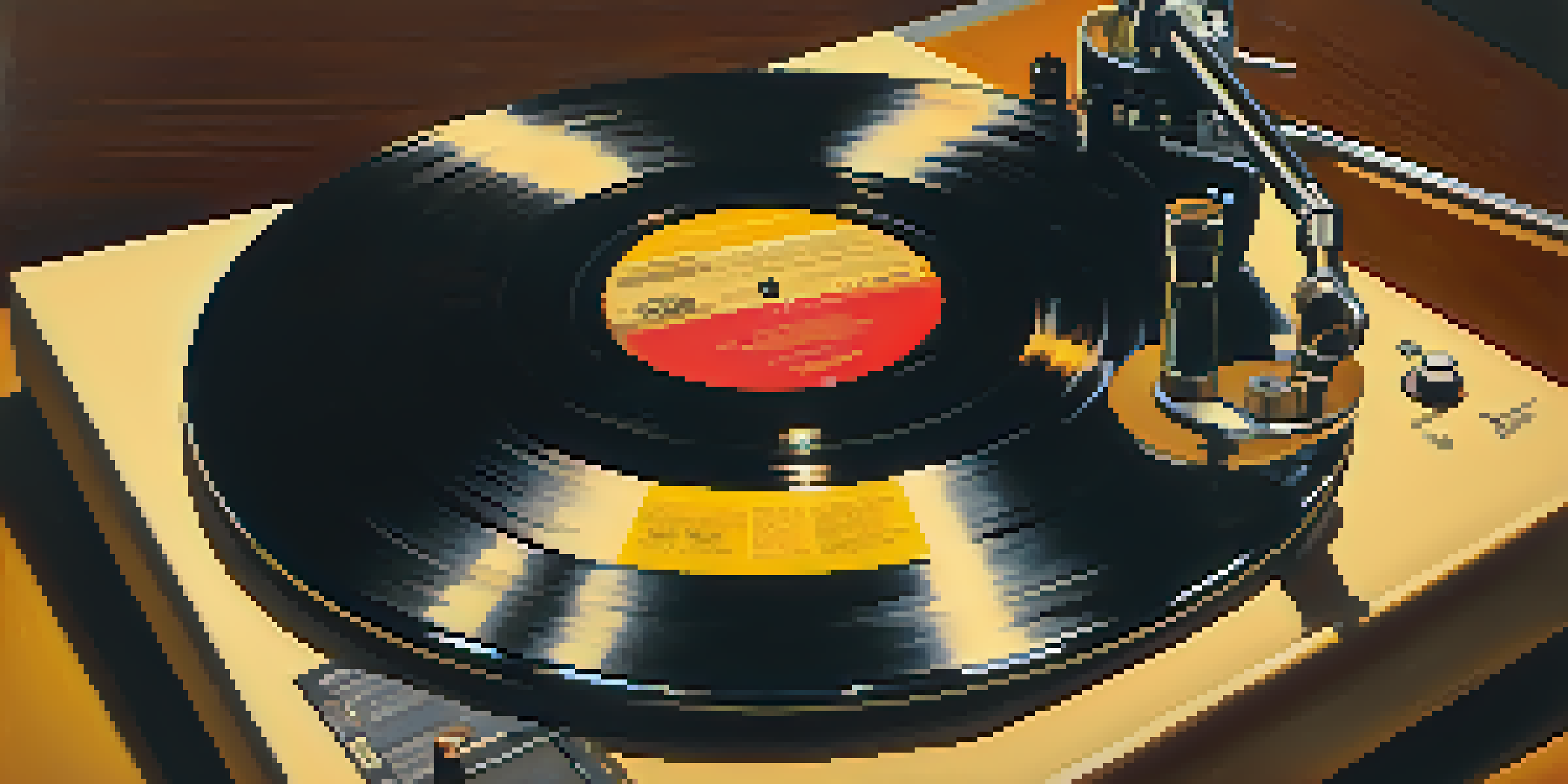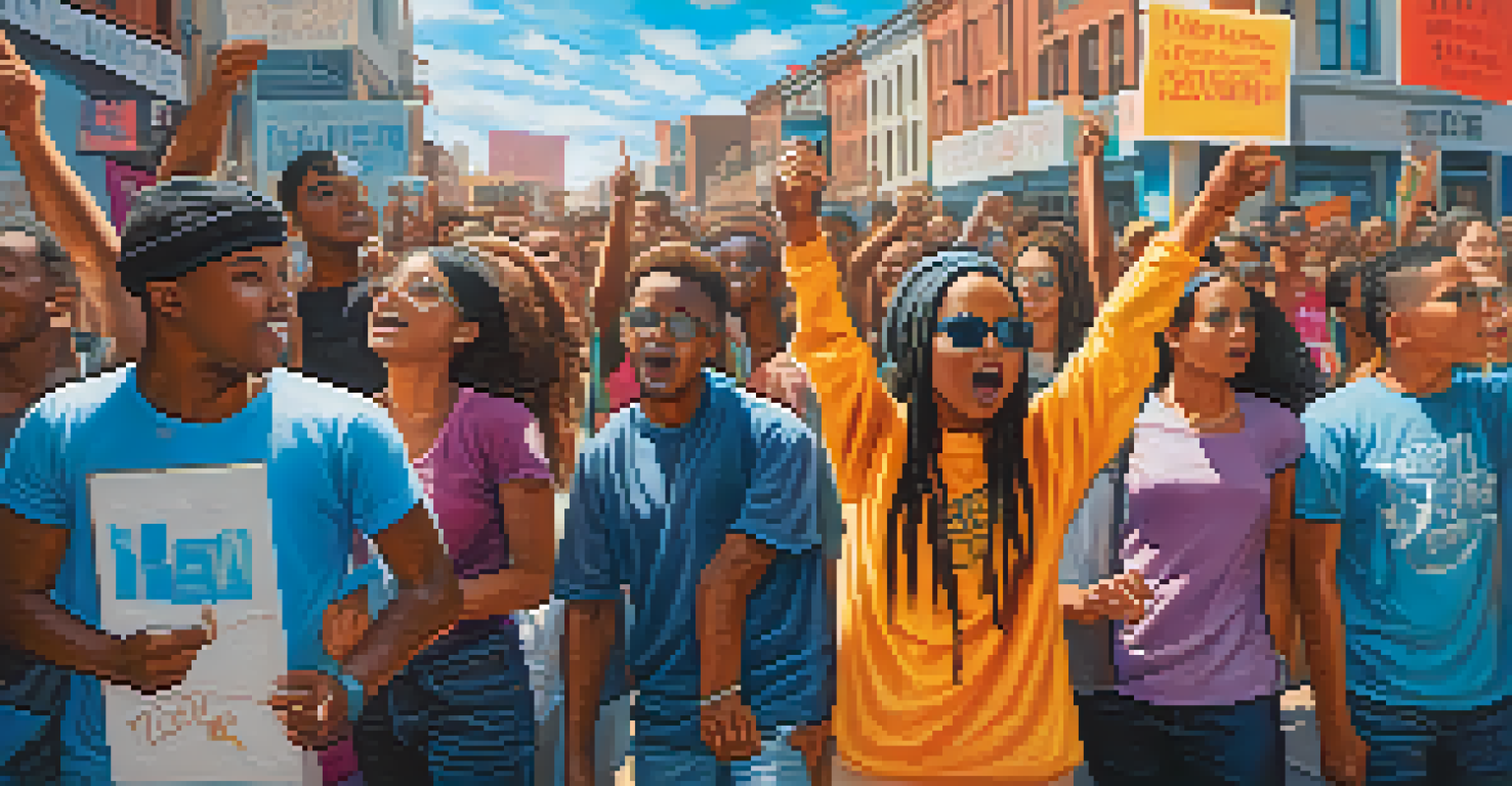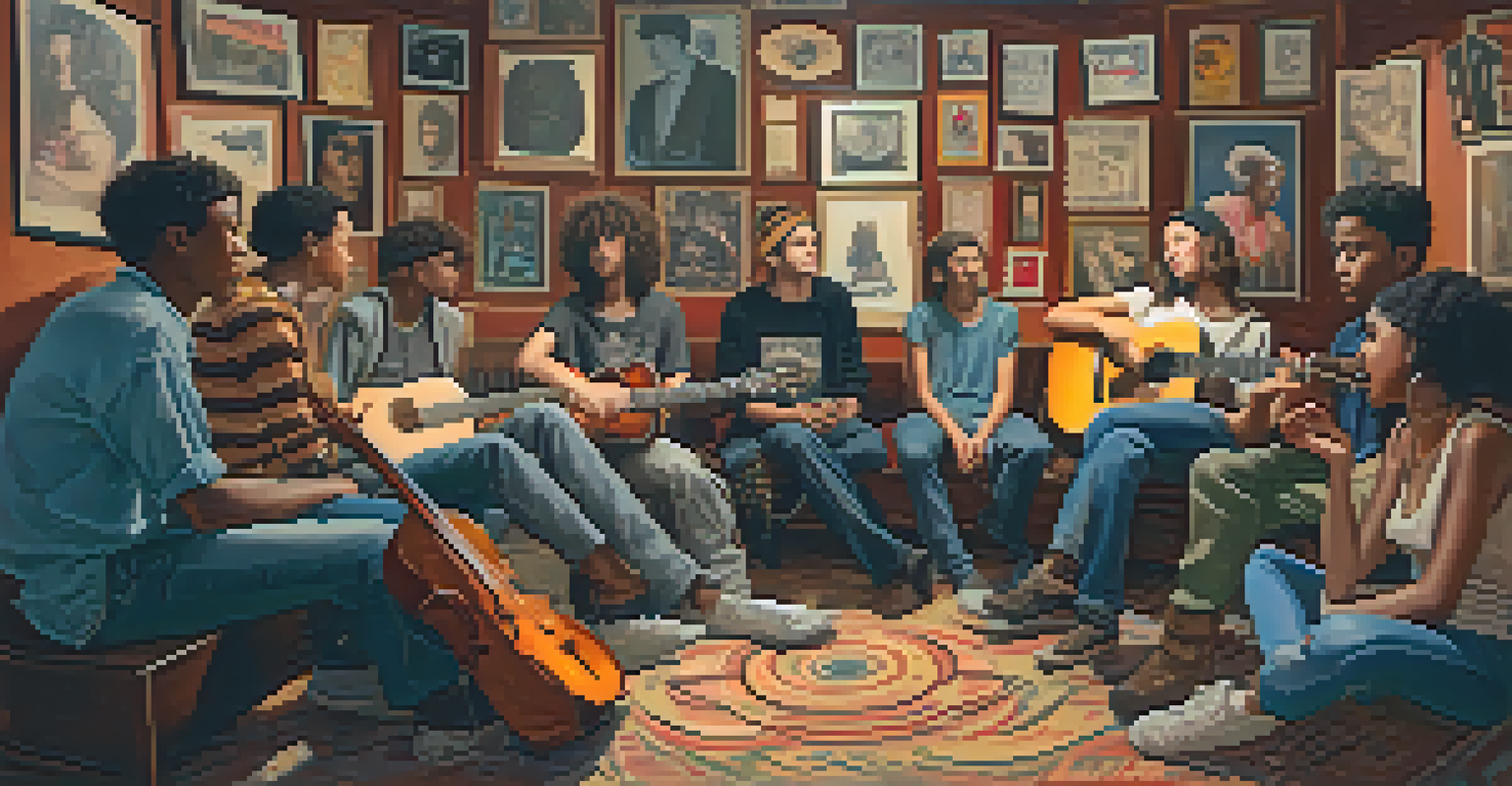Music's Role in Shaping Youth Political Perspectives

The Historical Connection Between Music and Politics
Throughout history, music has served as a powerful tool for political expression. From protest songs in the 1960s to today's anthems, artists have used their voices to inspire change. This deep-rooted connection illustrates how music can shape societal values and influence youth perspectives on political issues.
Music can change the world because it can change people.
For instance, songs like Bob Dylan's 'The Times They Are a-Changin'' became anthems for social movements, urging young people to engage with the pressing issues of their time. Such music not only reflects the political climate but also encourages listeners to think critically about their beliefs and actions. As a result, the melodies and lyrics resonate with youth, often sparking discussions around political themes.
Today, we see similar patterns where contemporary artists address current issues like climate change, racial injustice, and human rights. This ongoing relationship between music and political sentiments ensures that each new generation finds its voice and direction through the rhythms and messages that inspire them.
Music as a Catalyst for Social Movements
Music serves as a rallying cry for social movements, uniting individuals around shared causes. From the Civil Rights Movement to modern-day climate strikes, songs have played a crucial role in mobilizing youth and fostering solidarity. The communal experience of singing or listening together can build a sense of purpose and urgency among young activists.

Take, for example, the impact of 'We Are the World' in the 1980s, which not only raised awareness for famine relief but also galvanized young people to take action. Similarly, today's viral hits often become the soundtrack for protests, showcasing the power of collective voices. Young people are more likely to feel empowered to engage politically when they connect emotionally with the music that resonates with their values.
Music Fuels Political Movements
Throughout history, music has united individuals around shared causes, inspiring youth to engage in social and political activism.
Moreover, social media amplifies this effect, allowing songs to spread rapidly and reach a global audience. Platforms like TikTok and Instagram turn snippets of protest songs into viral sensations, further encouraging youth to participate in social movements and express their political views through music.
Lyrics That Spark Political Conversations
The lyrics of a song can often serve as a springboard for important political conversations. Many artists intentionally craft their words to provoke thought and challenge the status quo. When young listeners engage with these lyrics, they may find themselves questioning existing norms and considering new perspectives.
The power of music makes all the difference in the world.
For example, Kendrick Lamar's 'Alright' became an anthem for the Black Lives Matter movement, inspiring discussions about systemic racism and police brutality. The powerful messages embedded within the music encourage young people to reflect on their own beliefs and experiences. This process of introspection can lead to a more informed and active approach to political engagement.
Furthermore, social media platforms allow for real-time discussions around song lyrics, enabling youth to share interpretations and connect with like-minded individuals. As they dissect these messages, young people not only deepen their understanding of political issues but also cultivate a sense of community and shared purpose that extends beyond the music itself.
Influence of Music Genres on Political Perspectives
Different music genres often carry distinct political messages and cultural significance. For instance, hip-hop has a long history of addressing social justice issues, while punk rock has championed anti-establishment sentiments. These genres can shape the political perspectives of young listeners by aligning them with particular ideologies or movements.
Artists like Public Enemy and Rage Against the Machine have used their platforms to highlight inequalities and inspire political activism. In contrast, genres like country music may focus more on community values and traditionalism, impacting how listeners view political issues. This diversity in musical expression allows youth to explore a wide range of perspectives and decide where they fit within the political landscape.
Lyrics Ignite Political Dialogue
Thought-provoking lyrics from artists challenge young listeners to reflect on their beliefs and engage in crucial political conversations.
Additionally, the crossover between genres can introduce listeners to new ideas and broaden their understanding of political issues. A young country fan might discover a punk band that challenges their views, prompting them to reconsider their beliefs. This fluidity in music genres creates a rich tapestry of political discourse, encouraging youth to engage with various viewpoints.
The Role of Music in Political Campaigns
Political campaigns have long recognized the power of music in shaping public perception and rallying support. Campaigns often use specific songs to evoke emotions and create a sense of unity among supporters. For young voters, these musical choices can significantly impact their political engagement and decision-making processes.
Consider how Barack Obama's campaign famously used songs like 'Yes We Can' to energize young voters. The catchy tunes not only stuck in people's minds but also fostered a sense of hope and change. When music resonates with young people, it can motivate them to participate in elections and advocate for the issues they care about.
Moreover, the use of music in campaigns can create lasting connections between candidates and voters. A memorable campaign song can become synonymous with a candidate’s message, embedding political ideals into the cultural consciousness. This underscores the importance of music as a tool for political mobilization and engagement among youth.
The Impact of Streaming Services on Political Music
The rise of streaming services has transformed how young people discover and engage with political music. Platforms like Spotify and Apple Music provide access to a vast library of songs, making it easier for youth to find music that resonates with their political beliefs. This accessibility broadens their understanding of political issues and the diverse perspectives that exist.
Curated playlists that focus on social justice or political themes allow listeners to explore new artists and genres without the barriers of traditional radio. As young people dive into these playlists, they often encounter songs that inspire activism and spark conversations about pressing issues. This constant exposure to politically charged music can influence their perspectives and encourage them to take action.
Streaming Shapes Political Music Access
Streaming services broaden young people's access to politically charged music, fostering community and encouraging activism.
Additionally, streaming services enable artists to share their message directly with fans, fostering a sense of community around political music. Social media integration allows for real-time sharing of songs and discussions, amplifying the impact of politically motivated music in shaping youth perspectives.
The Future of Music and Youth Political Engagement
As the world evolves, so does the music that reflects and influences youth political engagement. Emerging artists continue to push boundaries and tackle contemporary issues, ensuring that music remains a vital part of the political landscape. This evolution not only shapes youth perspectives but also encourages them to become active participants in the political process.
With the rise of global movements and digital platforms, young people have more opportunities than ever to connect with political music from around the world. This cross-cultural exchange can lead to a richer understanding of global issues and foster solidarity among youth advocating for change. As music transcends borders, it has the potential to create a united front for social justice.

Ultimately, the relationship between music and youth political perspectives is likely to grow stronger in the coming years. As artists continue to use their platforms to inspire change, young listeners will find empowerment and encouragement in the melodies that resonate with their beliefs, paving the way for a more engaged and politically aware generation.